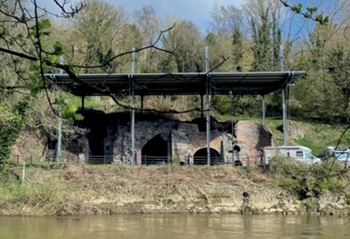Engineering services still struggle with labour shortages
Contents |
[edit] Engineering services firms continue to struggle with labour shortage
The latest quarterly survey of the UK engineering services sector, backed by leading trade bodies ECA, BESA, SELECT and SNIPEF, reveals that electrotechnical businesses continue to be held back by slow growth, partly blamed on a shortage of adequately skilled workers. The survey paints a picture of an overriding issue which has been of consistent concern for the last four quarters.
Half of all survey respondents (48%) said they currently have vacancies in their organisations. Half of these (50%) said they have trouble filling these vacancies due to an insufficient supply of applicants. Just under half said that applicants lacked the right attitude or behaviours (46%), and that applicants’ pay expectations were too high (45%). Over 8 in 10 (85%) survey respondents were SMEs – meaning they employ 250 or fewer people.
[edit] Tackling underlying challenges
These findings underscore ECA’s ongoing work to improve skills in the sector, including the ECA Recharging Electrical Skills Charter . This highlights the significance of the electrical contracting sector and electrical skills to the economic opportunities and practical delivery of the UK’s net zero goals.
Download the ECA Recharging Electrical Skills Charter
When it came to being paid on time, 63% of survey respondents said commercial clients and main contractors took 31 to 60 days to pay for work. 13% said this can take 61 to 90 days. Half (49%) of respondents said public sector clients can take 31 to 60 days to pay – and 13% - over one in ten – said they can take 61 to 90 days. Almost three in 5 (58%) respondents said between 1 and 10% of their turnover is currently being held in retentions.
[edit] Association Comments
ECA COO Andrew Eldred said:
“Through further action at national and local levels we need to bring the number of electrical apprentice starts up to a sustainable level. We should also expand appropriate green upskilling opportunities for already qualified electricians, using the industry’s own ‘Electrician PLUS’ kitemark.
“Policymakers need to start listening to engineering services SMEs and reshape the skills system to deliver training routes which real-world employers value and recognise. This is essential if we are to build an appropriately sized workforce with the right qualifications to install low-carbon technologies efficiently and safely.”
Rob Driscoll, ECA Director of Legal and Business, said:
“Until the scope for late and abusive payment (including retentions) is resolved the health of the engineering services sector will continue to be stunted. Slow growth disproportionately affects “SME firms who tend to be at the end of the supply chain. Without more action to fairly and proportionately spread risk throughout the supply chain, there is a potential for unnecessary business failure in the industry. For electrotechnical firms to remain resilient, there must be fairer risk sharing between clients and industry. There will be little growth in the economy towards green energy and net zero if those at the delivery end of the supply chain carry a greater burden of risk”
BESA's Director of Legal and Commercial Debbie Petford. said:
"In our recently published Top 30 M&E Contractors Report, many of the sector's senior managers noted that the prospects for growth were improving - particularly in high value sectors like healthcare, data centres, and research,"
"They noted that there was a clear pipeline of projects for the next three to five years in sight and that MEP services were responsible for a higher proportion of the value in these strong growth sectors.
However, they continue to be worried about the lack of skills and diversity in the industry's workforces, and the need to improve productivity by wider adoption of digital and off-site solutions which require new skillsets. This will clearly be a barrier to growth in the near future and BESA will be working hard with its members to help them plug key gaps. We also need to see some concrete proposals from the main parties about how they would help employers address skills and recruitment challenges in the general election campaign."
[edit] Skills framework of core competencies of qualified electricians
Electrician PLUS was launched by The Electrotechnical Skills Partnership (TESP) in August 2023. It is a skills framework that focusses on the core competence of a qualified electrician as a foundation from which to upskill and train in low carbon installation.
Learn more about Electrician PLUS
This article appears on the ECA news and blog site and via Press Release as "Engineering services firms continue to struggle with labour shortage" dated May 30, 2024.
--ECA
[edit] Related articles on Designing Buildings
- Chancellor's 2022 Autumn statement industry response.
- Does the Autumn Statement fire the starting pistol for an election campaign?
- Engineers and politics.
- ECA articles.
- Industry responds as Rishi Sunak becomes new PM.
- No net zero without skilled workforce.
- Pre-election analysis.
- Property in politics.
- The autumn statement: What is it and does it effect construction ?
- Main author
- The general election and why a shortage of electrical apprentices matters.
Featured articles and news
The act of preservation may sometimes be futile.
Twas the site before Christmas...
A rhyme for the industry and a thankyou to our supporters.
Plumbing and heating systems in schools
New apprentice pay rates coming into effect in the new year
Addressing the impact of recent national minimum wage changes.
EBSSA support for the new industry competence structure
The Engineering and Building Services Skills Authority, in working group 2.
Notes from BSRIA Sustainable Futures briefing
From carbon down to the all important customer: Redefining Retrofit for Net Zero Living.
Principal Designer: A New Opportunity for Architects
ACA launches a Principal Designer Register for architects.
A new government plan for housing and nature recovery
Exploring a new housing and infrastructure nature recovery framework.
Leveraging technology to enhance prospects for students
A case study on the significance of the Autodesk Revit certification.
Fundamental Review of Building Regulations Guidance
Announced during commons debate on the Grenfell Inquiry Phase 2 report.
CIAT responds to the updated National Planning Policy Framework
With key changes in the revised NPPF outlined.
Councils and communities highlighted for delivery of common-sense housing in planning overhaul
As government follows up with mandatory housing targets.




















